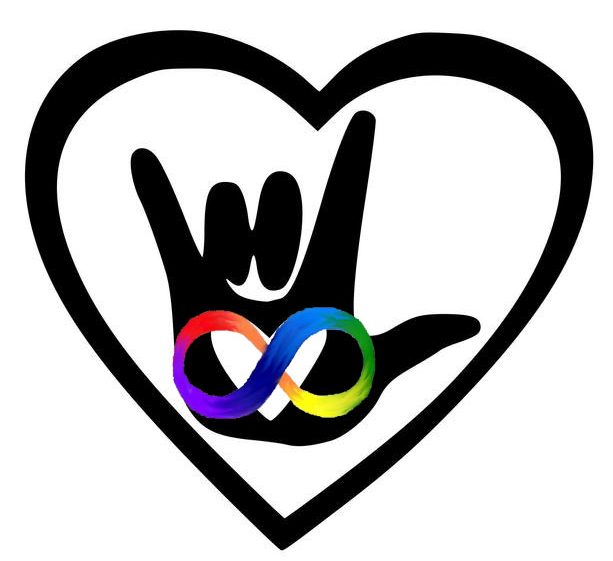Autistic adults have been saying this for decades but science just caught up with this one. The rate of loneliness is significantly higher in autistic adults than non autistic adults.
A study called “I’m Trying to Reach Out, I’m Trying to Find My People” was conducted at the University of Sussex by Dr. Gemma Williams. She said, “Autistic people were way more distressed by their loneliness than neurotypical people.”
We know. We have been saying this for years.
This is important because research shows that autistic people experience loneliness more often than non-autistic adults. Sensory differences do contribute to higher rates of loneliness. Sensory differences contribute to higher loneliness. Both sensory differences and loneliness are linked to poor mental health, anxiety, and depression, for example.
The study was set to see if this was unique to autistic people or if this affects neurotypical people too. If they find out where there are differences between autistic and non-autistic people regarding loneliness, it lets autistic people put their thoughts about loneliness in their own words. This is important because people can learn how to improve the rate of loneliness and improve people’s mental health.
Goal of the Study
Their goal was to ask autistic people how they experience loneliness, and to empirically test whether the links between sensory differences, loneliness, anxiety, and depression and if they present in autistic people only or in neurotypical people too.
Study Design
This was a mixed-method study, which means they conducted two studies in one.
In study A, they asked autistic and non-autistic adults to fill out questionnaires about loneliness. They were asked how distressed they were about loneliness, anxiety, and depression and how they experienced the sensory environment.
This was a quantitative study. The non-autistic people who were participating in the study were the control group. There were two groups. There were 109 autistic participants and 100 non-autistic participants.
All participants were English speakers. There were people excluded who had a history of brain injury or organic brain disorders and intellectually disabled autistics or psychosis.
Data from both groups were taken between July 2017 and December 2019 at the University of Sussex.
In study B, they asked eight autistic adults to speak with each other and non-autistic participants about their experience with loneliness. They were given conversation starters. The researchers looked for common themes that were present during the conversations.
Study B was a substudy of a doctoral research project in linguistics that explored differences in communication patterns of autistic people in comparison to non-autistic people.
Participants from both groups volunteered to participate in an unstructured conversation for about 10 minutes about the topic of loneliness.
The original study design was a small case study using adapted conversational analysis. This focused on language use instead of the content that was used.
They invited 8 autistic adults to be the test group in this study. They conversed with a familiar and self-chosen conversation partner, an autistic stranger, and a non-autistic stranger.
This was important because there might be a difference in conversation when there is familiarity. There also might be a difference in conversation due to the influence of the neurotype of the conversation partner.
Results
Study A:
The researchers found that autistic people were more distressed about being lonely and had higher levels of loneliness, depression, anxiety, and sensory differences than non-autistic people.
In both groups, sensory differences were related to higher anxiety and depression, and loneliness was an important influence on this relationship.
The finding of Study A was supported by the results of Study B. Autistic participants described that they often struggle to make meaningful connections because their sensory sensitivities keep them from going out.
They did not find a significant group interaction effect on the relationship between loneliness and loneliness distress. This demonstrates that loneliness is linked with distress regardless of neurotype. The level of distress was elevated in the autistic group.
The only significant interaction effect that they observed was the relationship between autistic traits and loneliness distress. This indicates the absence of an autism diagnosis, loneliness distress increases with autistic traits.
This strengthens the findings that the distress of being lonely isn’t exclusive to nonautistic people. This is different than society’s view of autistic people.
Study B:
This study only reported what the autistic participants said.
They talked about their personal experiences with loneliness and how being autistic had a large role in it. They observed the participants have reflections in the common room after the observed conversation and at a follow-up “sense-making” workshop 9 months after the data collection. The participants agreed that it was “a gift” to be able to share their experiences.
The themes of the conversations were:
- A practical type of loneliness- social inclusion, absence of affordable and accessible community spaces, and reduced ability to access social spaces in busy urban areas.
- A deeper yearning for connection with others and the sense that this was somehow out of reach. They commented on mental health issues like depression and anxiety. They said that it caused loneliness and effects this kind of deepr loneliness and issues of being autistic in a dominantly non autistic world.
- Seeking solitude and overwhelm and the need for solitude. The autistic particpants said they like to spend time by themselves. This does not negate the distressing expereinces of feeling loneliness.
How Will These Results Help Autistics In the Future
The researchers hope that their findings will support the idea that loneliness is a distressing experience for autistic people and that society needs to recognize and create welcoming sensory environments that help autistic to overcome the disconnect that they experience so often.
The way society “others” autistic people most likely increases loneliness, is expressed by ascribing social motivation or communication deficits to them instead of considering that there is a disconnect on both sides.
This causes autistic people to be “abandoned by humanity.” This elevates the overrepresentation of loneliness in the autistic community from individual circumstances to “ethical loneliness.” This is the rejection of individuals or groups of people through repeated societal unethical behavior.
An example of this abandonment is the lack of consideration of sensory differences. Many autistic people avoid engaging in social spaces where meaningful interactions could be built as the sensory profile of these places lacks accommodation to promote inclusivity.
The lack of accommodations makes it more difficult for autistic people who are seeking these connections to make them. This makes autistics more likely to increase isolation. This could also increase feelings of depression.
My Thoughts on This Study
This study is definitely a step in the right direction. Autistic people’s sensory profiles are not the only factor in autistic people’s loneliness.
This study did leave out a large representation of the autistic community. A large part of the community is epileptic and intellectually disabled. Not only that, a large part of our population has mental illnesses with psychosis. Studies like this need to include different representations of our community.
More studies need to be done on this subject and others that will improve the lives of autistics. I am hoping this sparks other studies like this. They actually asked autistic people what they thought and allowed them to say what they needed to without judgment.
Abelism in society and individuals in society contributing to loneliness need to be studied as well. Society puts a lot of emphasis on “normal.” Masking needs to be included in future research on ableism.
The effects of past experience of ABA in relation to loneliness and masking. Masking plays a big role in loneliness when it comes to neurodivergent people as a whole. Masking is a survival skill neurodivergent people use to survive in this ableist society.
This study is a step in the right direction but a lot more research needs to be done in order to better our lives and to be more accepted in society. All representations of our community needs to be included.
Source study:



Hi Aviva,
very glad this study was done *before* COVID-19
after COVID-19 a great many autistic and non-autistic people felt lonely.
LikeLike